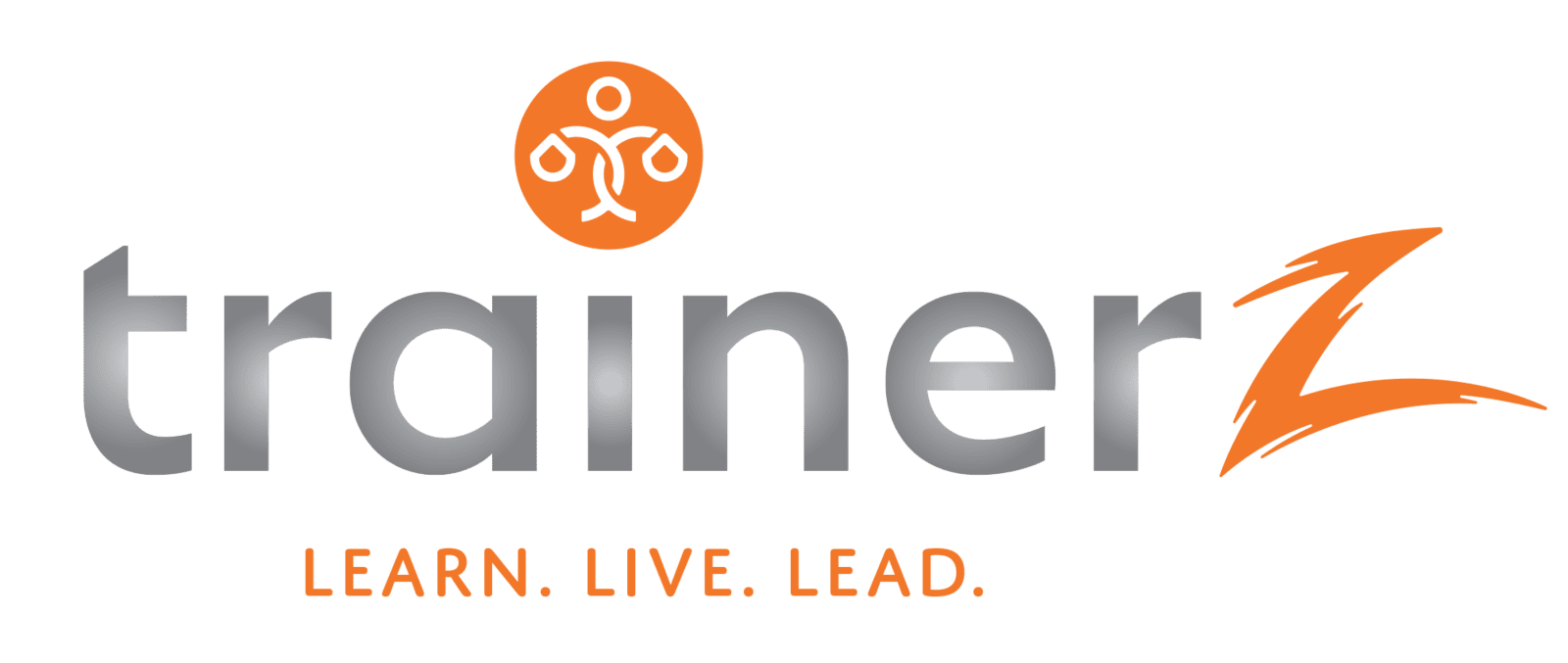Introduction
Introduction
In today’s rapidly evolving global economy, many individuals—especially recent graduates and those dissatisfied with the rigid corporate world—are questioning whether traditional employment will offer them long-term security and financial stability. With growing evidence of global economic uncertainty job outlook and a shrinking job market, the allure of creating one’s own opportunities through small and medium enterprise (SME) ownership has never been stronger.
But how does one assess if SME ownership is right for you? This isle will help you navigate that decision by examining the essential skills, mindset, and behavioural traits required to succeed as an entrepreneur, as well as the practical steps you can take to transition from employee to business owner.
Assessing Your Entrepreneurial Potential: Is SME ownership right for You?
Assessing Your Entrepreneurial Potential: Is SME ownership right for You?
Before diving into the world of SME entrepreneurship, it’s crucial to evaluate your personal readiness and determine if you have the capacity for business ownership. This self-assessment involves asking fundamental questions like, “Am I cut out for entrepreneurship?” and conducting a self-assessment for small business ownership.
Starting or running an SME is not for everyone, but how do you know if it’s right for you? The first step is to assess your entrepreneurial potential.
Ask yourself:
Do I enjoy solving problems and taking initiative?
Am I comfortable with uncertainty and risk?
Do I have the drive to work independently and stay motivated?
Am I comfortable with uncertainty and the possibility of financial loss?
Can I bounce back from setbacks and learn from failures?
Do I have a genuine passion for my business idea?
Entrepreneurship requires a unique blend of creativity, resilience, and self-discipline. Tools like entrepreneurial self-assessments or mentorship sessions can help you evaluate your readiness.
Remember, many successful entrepreneurs didn’t start out with all the answers—they learned along the way. The key is to be honest with yourself about your strengths and weaknesses and to recognize that entrepreneurial potential is not determined by your past academic performance but by your willingness to learn and adapt.
Consider the following factors:
Financial Stability – Are you prepared to invest time and possibly some money without the immediate security of a regular paycheck?
Risk Tolerance – Do you have an entrepreneurial readiness for SMEs, understanding that risks exist, but that these risks may be managed and ultimately rewarded?
Passion and Motivation – Is there a driving force behind your desire to become your own boss? The benefits of starting a SME are numerous, but they require a strong passion for your chosen field.
Self-Assessment Tools – Utilize tools such as a SME startup suitability test or an entrepreneurial potential test to objectively evaluate your strengths and weaknesses.
Learning how to determine if SME ownership is right for you means understanding that your ability to succeed is less about formal academic achievement and more about practical skills, resilience, and the willingness to take control of your future.

Why consider starting or running an SME?
Why consider starting or running an SME?
The question, “Why start your own business vs. working for someone?” is becoming increasingly relevant in today’s unpredictable job market. Traditional employment is becoming less secure, and the corporate world—characterized by corporate downsizing effects and increasing competition in corporate jobs—offers fewer long-term opportunities.
By contrast, starting an SME offers:
Autonomy – The freedom to make your own decisions, set your schedule, and direct your own career path.
Financial Independence – A path to financial security through financial independence through SME ownership rather than being at the mercy of a corporate boss.
Personal Growth – The opportunity to develop a broad set of skills and adapt to rapidly changing conditions.
Personal Fulfilment – The satisfaction of building something meaningful.
Flexibility – Greater control over your work-life balance.
Making a Difference – Contributing to your community and creating jobs.
Innovation and Creativity – The chance to bring your unique ideas to life and contribute to local economic growth.
Job Creation – Not only do you create your own job, but you also have the potential to create additional employment opportunities in your community.
These advantages of SME ownership provide compelling reasons to consider entrepreneurship as a sustainable career option.
The Entrepreneurial Mindset: Beyond academic success
The Entrepreneurial Mindset: Beyond academic success
The entrepreneurial mindset is about more than just intelligence or academic success. It’s about resilience, curiosity, and a willingness to fail and learn. Many successful entrepreneurs, like Richard Branson and Steve Jobs, struggled in traditional educational settings but thrived in the world of business because they had the right mindset.
One common misconception is that academic success directly translates to business success. However, the entrepreneurial mindset vs. academic success debate reveals that traditional education systems often do not equip students with the skills needed for SME startup success. The current educational system is largely designed to prepare students for roles within established corporate structures, leaving a curriculum gap for future entrepreneurs.
Instead, successful entrepreneurship relies on:
Creative Problem Solving – Embracing complexity and ambiguity.
Growth Mindset – Believing in your ability to learn and grow.
Proactiveness – Taking initiative and seeking out opportunities.
Adaptability – The ability to pivot in response to market changes.
Resilience – Overcoming failures and setbacks.
Passion and Purpose – The driving force behind innovation and the determination to succeed despite challenges.
Developing an entrepreneurial mindset requires looking beyond college and learning through real-world experiences, mentorship, and self-directed study.
Becoming an entrepreneur requires self-directed learning and a willingness to take risks. Mindset for SME success centres on problem-solving, innovation, and a customer-centric approach.
Entrepreneurial thinking for small business owners involves seeing opportunities where others see challenges.

Behavioural Traits of Successful Entrepreneurs: Are You a match?
Behavioural Traits of Successful Entrepreneurs: Are You a match?
Beyond tangible skills, the success of an entrepreneur often hinges on intrinsic behavioural traits. Ask yourself, “Do I have the traits of a successful entrepreneur?”
Key traits include:
Resilience – The capacity to recover from setbacks is essential.
Self-Motivation – A drive to succeed independently without external validation.
Risk Tolerance – Comfort with uncertainty and the willingness to take calculated risks.
Creativity and Innovation – The ability to think outside the box and develop unique solutions.
Adaptability – Flexibility to adjust to changing market conditions.
Passion – A deep-seated enthusiasm for your chosen field, fuelling persistence and long-term success.
Entrepreneur personality traits can vary, but these core traits are often present. Understanding your entrepreneurial personality traits can help you determine whether you are well-suited for SME ownership and whether you can thrive in a challenging and ever-changing environment.
From Employee to Entrepreneur: Embracing autonomy and financial independence
From Employee to Entrepreneur: Embracing autonomy and financial independence
Transition from employee to entrepreneur is a significant shift.
The transition from working for someone else to becoming your own boss is transformative.
Benefits of entrepreneurship vs. corporate employment include greater autonomy and the potential for financial independence. Embracing autonomy through SME ownership is a key motivator for many entrepreneurs.
How to become financially independent with a SME involves building a profitable business and managing finances wisely. Career change to SME entrepreneurship can be a fulfilling path for those seeking greater control over their careers.
Many individuals are discovering that corporate employment—with its rigid structures and limited room for creativity—can be replaced by the freedom of entrepreneurship.
Financial independence through small business is a realistic goal with hard work and dedication.
Benefits include:
Autonomy – The power to set your own schedule and make decisions that align with your vision.
Financial Independence – The potential to build wealth on your terms through financial independence through SME ownership.
Personal Fulfilment – The satisfaction derived from creating something of your own, which often leads to greater job satisfaction and motivation.
Flexibility – The ability to adapt your business model as market conditions change, unlike the static nature of many corporate roles.
This shift from employee to entrepreneur requires a bold leap of faith, but the rewards—both personal and financial—are substantial.

Fortunately, there are alternative ways to acquire the necessary knowledge
Fortunately, there are alternative ways to acquire the necessary knowledge
Self-Learning – Online courses, webinars, and resources provide practical, real-world business skills. Topics such as how to start a SME and entrepreneurial training outside of school is available at online institutions like trainerz, where learners have access to a full SME program, consisting of 4x courses, 20x modules and 200x learning objectives.
Mentorship Programs – Engaging with experienced entrepreneurs can provide invaluable guidance. Mentorship for SME owners helps bridge the gap between theoretical knowledge and practical application. At organisations like trainerz, SME owners can join online communities with other SME owners across the world, and share ideas, thoughts, challenges and insights to assist one another.
Workshops and Networking – Attending SME training programs and networking events can offer insights into the challenges and rewards of entrepreneurship, as well as opportunities for collaboration and funding.
Dispelling the Myths: What Entrepreneurial success really takes
Dispelling the Myths: What Entrepreneurial success really takes
There are many myths about what it takes to succeed as an entrepreneur. For instance, many believe that academic success is a prerequisite for business success, but entrepreneurial mindset vs academic success shows that practical skills, creativity, and resilience are far more important.
Entrepreneurial success myths often focus on overnight riches and innate talent. What it really takes to succeed as an entrepreneur involves managing complexity in entrepreneurship and preparing for the unpredictable in business.
The power of passion and purpose in entrepreneurship cannot be overstated. What drives entrepreneurs is often a deep desire to create something meaningful and make a difference.
Overcoming the myths about starting a business requires a realistic understanding of the challenges and rewards.
Key insights include:
Managing Complexity and Ambiguity – Successful entrepreneurs learn to thrive in uncertainty. They understand what it really takes to succeed as an entrepreneur is not a linear formula but a combination of adaptability, persistence, and continuous learning.
Preparing for the Unpredictable – The ability to navigate unforeseen challenges is critical. This involves managing business risks, embracing failure as a learning opportunity, and continually refining your approach.
The Power of Passion and Purpose – Passion fuels the entrepreneurial journey, providing the drive to overcome obstacles and persevere even when the odds are against you.
Overcoming the Myths About Starting a Business – Real success is not determined by how well you performed academically, but by your capacity to learn on the job, adapt, and innovate.
Dispelling these myths empowers aspiring entrepreneurs to focus on building the skills and mindset that truly matter.
Practical steps to assess Your readiness for SME ownership
Practical steps to assess Your readiness for SME ownership
Knowing if you’re ready to embark on the SME journey requires honest self-assessment and practical planning.
Steps to evaluate if you’re ready for entrepreneurship include self-assessment for small business success and creating a practical SME readiness checklist. Tools to evaluate entrepreneurial potential can include online assessments and feedback from mentors.
Consider these steps:
Conduct a Self-Evaluation – Use tools like an entrepreneurial readiness quiz or SME startup suitability test to gauge your potential.
Evaluate Your Skills and Strengths – Identify the skills you already possess and those you need to develop through small business skills training.
Assess Your Financial Situation – Understand your financial capacity to invest in a startup, including potential startup costs and funding options.
Seek Mentorship and Guidance – Engage with mentors or join entrepreneur support networks to gain insights from those who have successfully transitioned from employee to entrepreneur.
Develop a Business Plan – Even a simple plan outlining your business idea, market, and financial projections can help clarify your readiness for SME ownership.
Consider Your Passion and Purpose – Reflect on whether you are motivated by the desire for autonomy, financial independence, and the ability to create your own destiny.

Taking the First Step: How to start Your SME journey
Taking the First Step: How to start Your SME journey
Once you have assessed your readiness, the next step is to take action.
Steps to starting your own business can be daunting, but resources are available to guide you. trainerz’ SME Program can be a startup guide for beginners, and also provides a roadmap for success.
How to launch a small business involves careful planning and execution. Starting a business with no capital may require creativity and resourcefulness.
First steps in SME entrepreneurship often involve validating your business idea and building a strong foundation.

Here’s a suggested roadmap for getting started:
Here’s a suggested roadmap for getting started:
Research and Validate Your Idea – Conduct market research to ensure there is demand for your product or service. Explore SME business ideas and analyze case studies of successful SMEs.
Create a Business Plan – Develop a comprehensive retail business plan template or small business startup guide for beginners. Outline your goals, target market, competition, and financial projections.
Secure Funding – Evaluate funding options—from personal savings to microfinance loans and government grants. Understand funding for SMEs and how to secure the necessary capital.
Build a Support Network – Connect with mentors, attend workshops, and join entrepreneur networks to build a strong support system.
Launch Your Business – Take the first step by registering your business (if necessary), setting up your operations, and beginning to market your services.
Stay Flexible and Adapt – Be prepared to adjust your strategy as you learn from real-world challenges. Continuous learning and adaptation are key to long-term success.
Taking this leap into entrepreneurship might seem daunting, but the rewards of owning an SME—financial independence, personal growth, and the freedom to shape your destiny—make it a journey worth embarking on.
Conclusion
Conclusion
The decision to start or run an SME business is a pivotal one. Traditional employment, with its shrinking job market and unpredictable corporate downsizing, no longer offers the same security it once did. In contrast, SME ownership offers a path to financial independence and security, along with the autonomy to shape your own career. The current educational system, which emphasizes corporate employment, does little to prepare future entrepreneurs. Instead, what matters is your ability to assess your own entrepreneurial potential, develop essential skills, and adopt a mindset that embraces uncertainty and values continuous learning.
Through self-assessment for small business ownership and by learning from real-world SME success stories, you can gauge whether you have the passion, resilience, and creativity required to succeed as an entrepreneur.
While starting a business comes with risks—such as financial instability, high competition, and the challenge of managing complexity and ambiguity—the benefits far outweigh the disadvantages when compared to the limited and often unstable opportunities offered by traditional employment.
Starting and running a SME business offers the potential for significant rewards, including financial independence, personal fulfilment, and the opportunity to create something meaningful.
If you are a recent graduate, a professional feeling stuck in the corporate grind, or someone with a strong desire for autonomy and innovation, now is the time to take control of your future.
SME entrepreneurship offers a promising alternative, empowering you to build a business that not only secures your financial future but also contributes to community development and economic resilience.
The journey may be challenging, but with the right mindset, skills, and support, the rewards are immense. Embrace the opportunity to become your own boss, and take that first step toward a brighter, more secure future.
Ultimately, the decision of whether to start or run an SME is a personal one. It requires careful self-assessment, a realistic understanding of the challenges and rewards, and a willingness to take calculated risks. If you possess the entrepreneurial mindset, the necessary skills, and a strong drive to succeed, then SME ownership may be the right path for you. Embrace the challenge, take control of your future, and build the business of your dreams.


